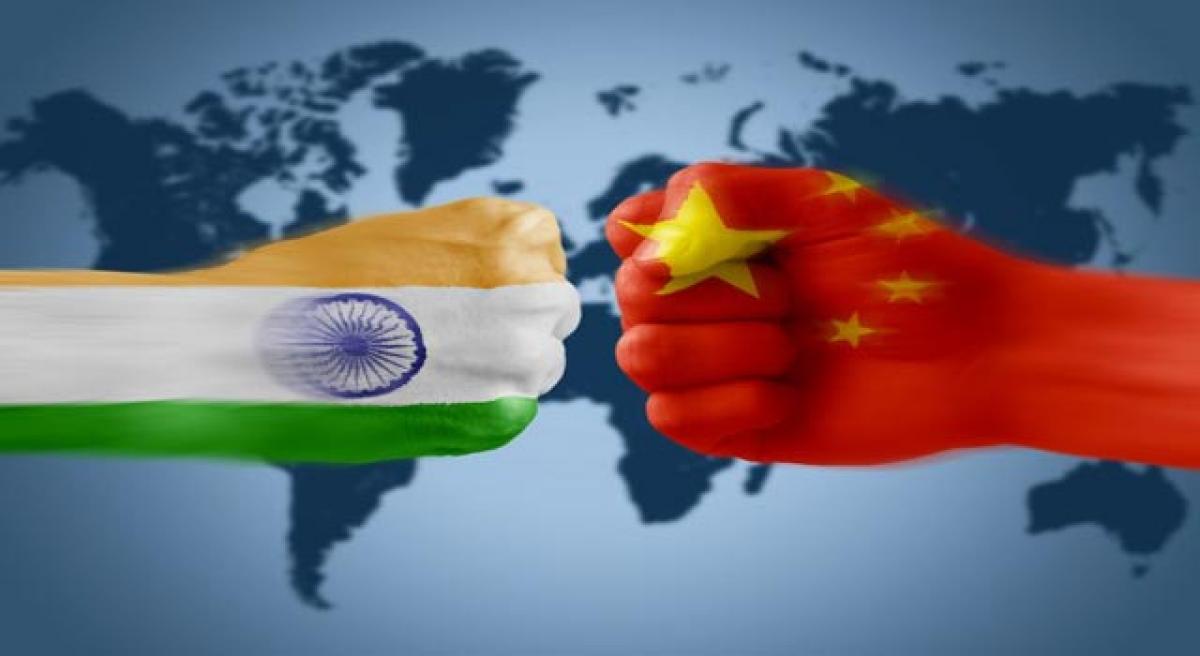Live
- Stokes motivates his team to put in extra effort, says England pacer Potts
- From overcoming setbacks to leading India in U19 Women’s Asia Cup, Niki Prasad's amazing journey
- Constitution debate: PM Modi hails 'Nari Shakti'; makes strong pitch for 'United Bharat’
- Bihar: Inquiry initiated against principal who went to buy veggies during school hours
- TN: DMK postpones executive meet due to heavy rains & Parliament session
- Porous silicon oxide electrodes can fix durability issues in batteries: Researchers
- Jalandhar civic polls: AAP promises launch of 100 e-buses, round the clock water supply
- Economic upliftment of rural women is priority of Tripura govt: CM Saha
- Rajmata Jijabai Trophy: Manipur move to top of the table, T.N register first win
- Italian envoy Baroli hoping to strengthen ties with India through football
Just In

The reaction of the Chinese to the Dalai Lama\'s visit is on the expected lines: Anger and frustration. China is angry that while “many countries have pledged not to extend invitations to Dalai Lama,” India dared, not once but repeatedly under the Narendra Modi government.
The reaction of the Chinese to the Dalai Lama's visit is on the expected lines: Anger and frustration. China is angry that while “many countries have pledged not to extend invitations to Dalai Lama,” India dared, not once but repeatedly under the Narendra Modi government. The frustration of China is also evident in its inability to fathom the Indian mind. All that it could conclude is that New Delhi could not overcome its suspicions against Beijing, “and hence is resorting to this usage of Dalai Lama as a political tool of propaganda against China.”
It went a step ahead and warned that China won’t allow India to free ride on its economic growth while jeopardising Beijing's core interests. Union Minister of State for Home Kiren Rijeju's warning that Beijing should keep off India's internal affairs has also rankled it to a great extent by calling it “an absurd claim.”
Reminding India that Dalai Lama had long been active in anti-China separatist activities under the guise of religion, Global Times, which toes the party's hardline in Beijing, commented: “New Delhi inviting the Dalai Lama to sensitive region gravely damages the China-India relationship.”
China's frustration at India's persistent opposition to its expansionist plans is only growing with India's objections to the CPEC (China-Pakistan Economic Corridor) passing through the occupied Kashmir territories. China is also planning exclusive SEZs earmarked for “Chinese only” which means that vast chunks of land in the occupied Kashmir would be controlled by China. It is adding a new dimension to the Indo-Pak troubles already.
Chinese opposition to India's moves to get Pak harbored terrorists, including Masood Azhar, banned and also to its efforts to seek membership of the Nuclear Suppliers Group has been a major bone of contention in the recent times between the two countries.
Secondly, China is very keen that India attend its Belt and Road summit in Beijing later next month. The summit, the first of its kind, has since attracted wide attention from the international community, it claims.
It wants to play it up big and announced at the conclusion of its 12th National People's Congress that more than 20 heads of state and government would attend the summit, together with more than 50 leaders from international organisations, over 100 ministerial officials and more than 1,200 guests from around the world.
The gathering is supported by most of China's peripheral countries, notably Russia, Indonesia, Kazakhstan and Pakistan. China is trying desperately to rope in India as it is aware of the trouble potential otherwise. China's answer to the apprehensions of India over the Belt and Road initiative is "the willingness of other countries in the area to take part in the project.”
China claims that India "sees the Belt and Road initiative as a geopolitical competition. The official reason the Indian government rejected the offer to join the initiative is that it is designed to pass Kashmir, a disputed area between India and Pakistan. However, it is just an unfounded excuse as Beijing has been maintaining a consistent position on the Kashmir issue, which has never changed."
Recently its media toeing the party line commented that "New Delhi may also feel embarrassed as Moscow has actively responded to the Belt and Road initiative and will build an economic corridor with China and Mongolia. Since the beginning of this year, there have been reports on Russia and Iran seeking to join the China-Pakistan Economic Corridor, which will likely put India in a more awkward position."
No doubt there could be others who are interested in the same. But India is certainly not going to make haste in any such plans – that too of paramount importance to its geo-political realities. Still, China insists that New Delhi join the grand project and make concerted effort in building economic corridors involving China, India, Sri Lanka, Nepal, Bangladesh and Myanmar.
It would be interesting to note China's moves hereafter, as India has just dug its feet in Dalai Lama's issue. China has always been wary of personalities who have the potential to damage its image abroad. It neither tolerated its people talking or writing against its so-called national interests nor outsiders who challenged its State's authority. Dalai Lama is China's Achilles heel. The venerable Lama has the potential to cause trouble internationally with his huge following.
China is afraid that if Dalai really gets political, many celebrities around the globe could join the chorus. Dalai Lama himself has termed his Tawang visit a religious one and not political, judged by any yardstick. Yet, China cannot digest the truth that while several other countries make amends once China reacts angrily, India simply ignores it.
By W Chandrakanth

© 2024 Hyderabad Media House Limited/The Hans India. All rights reserved. Powered by hocalwire.com







